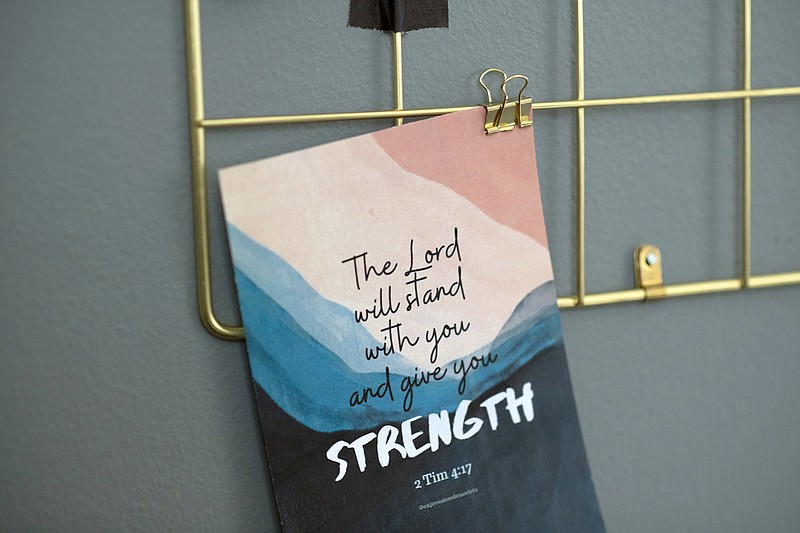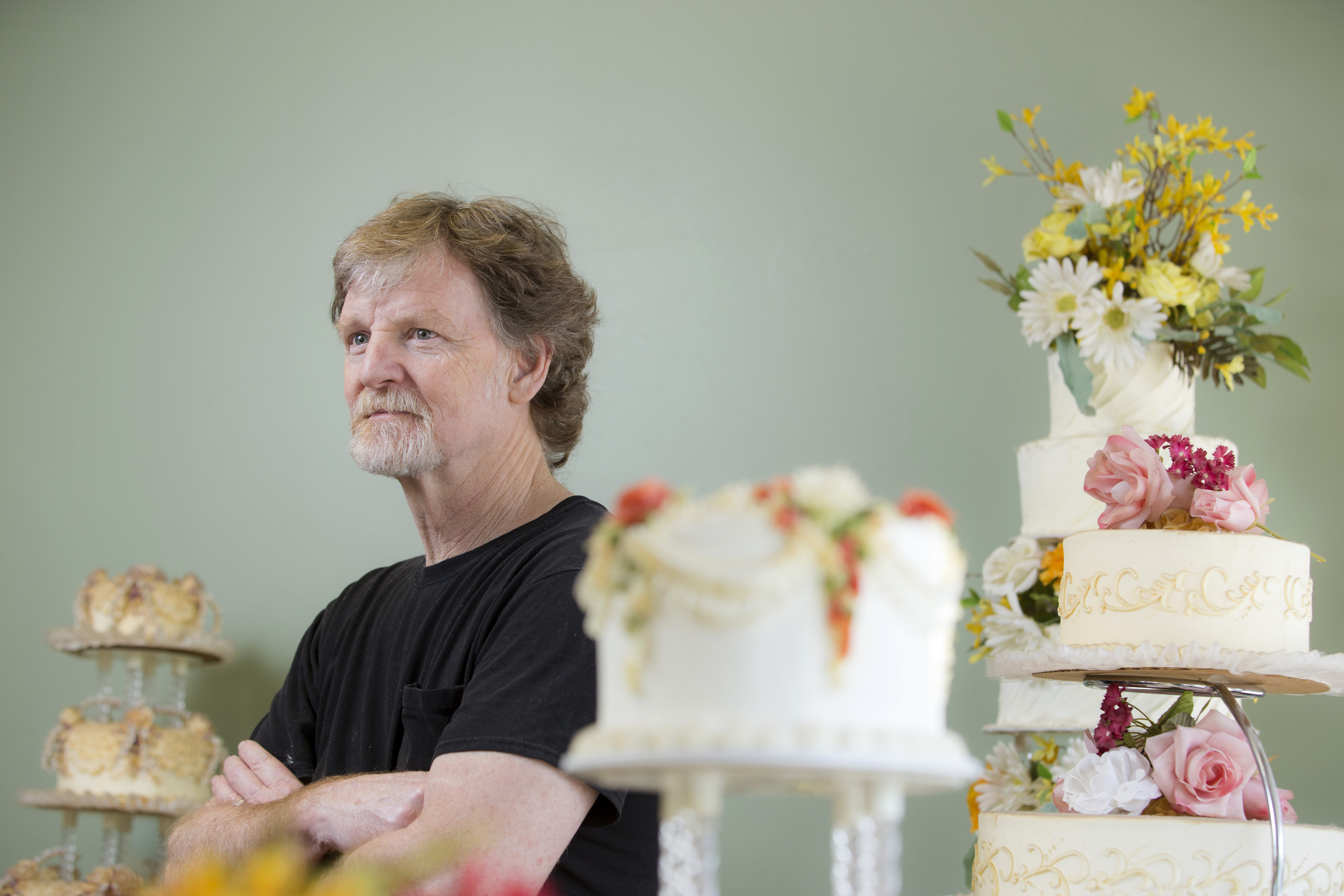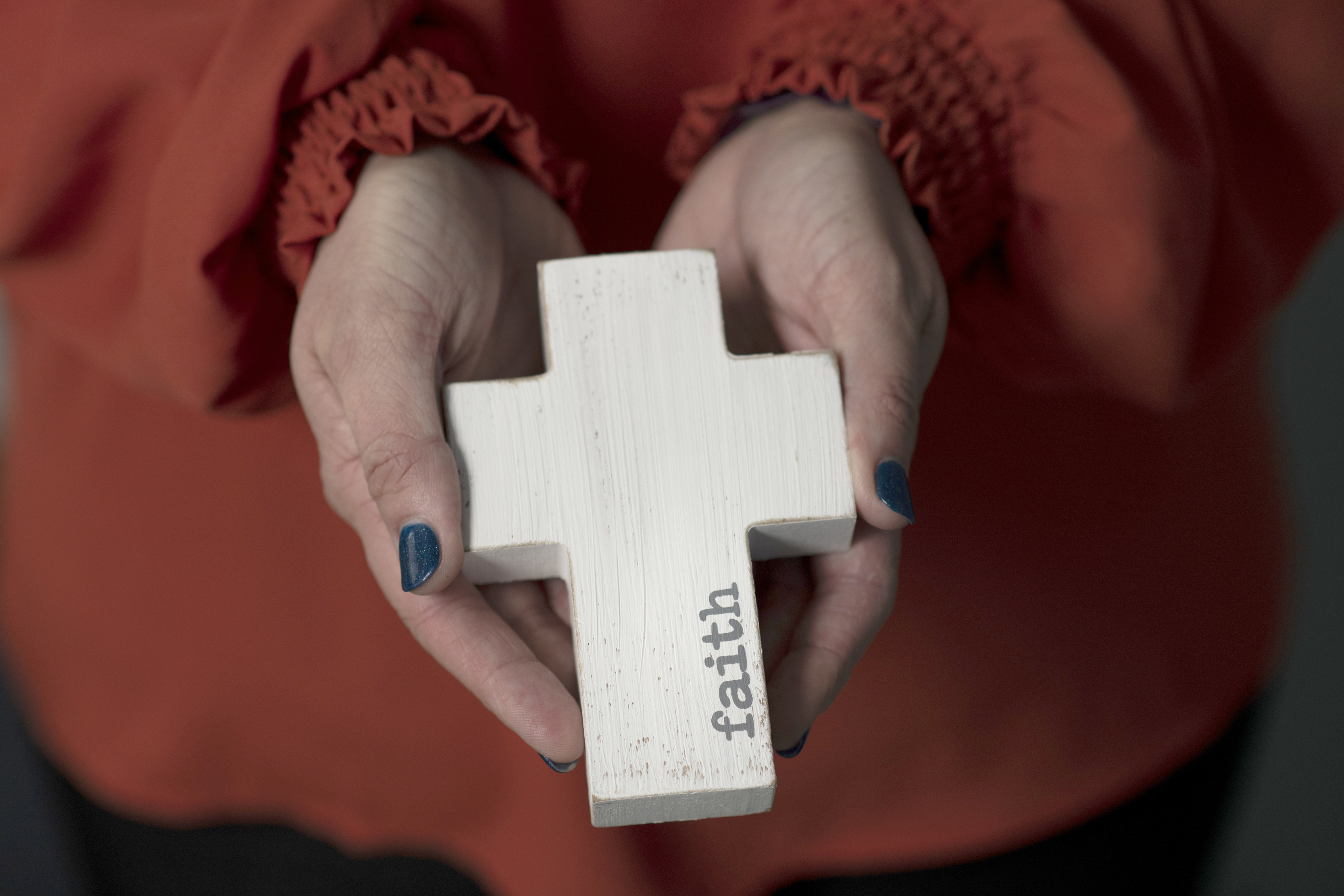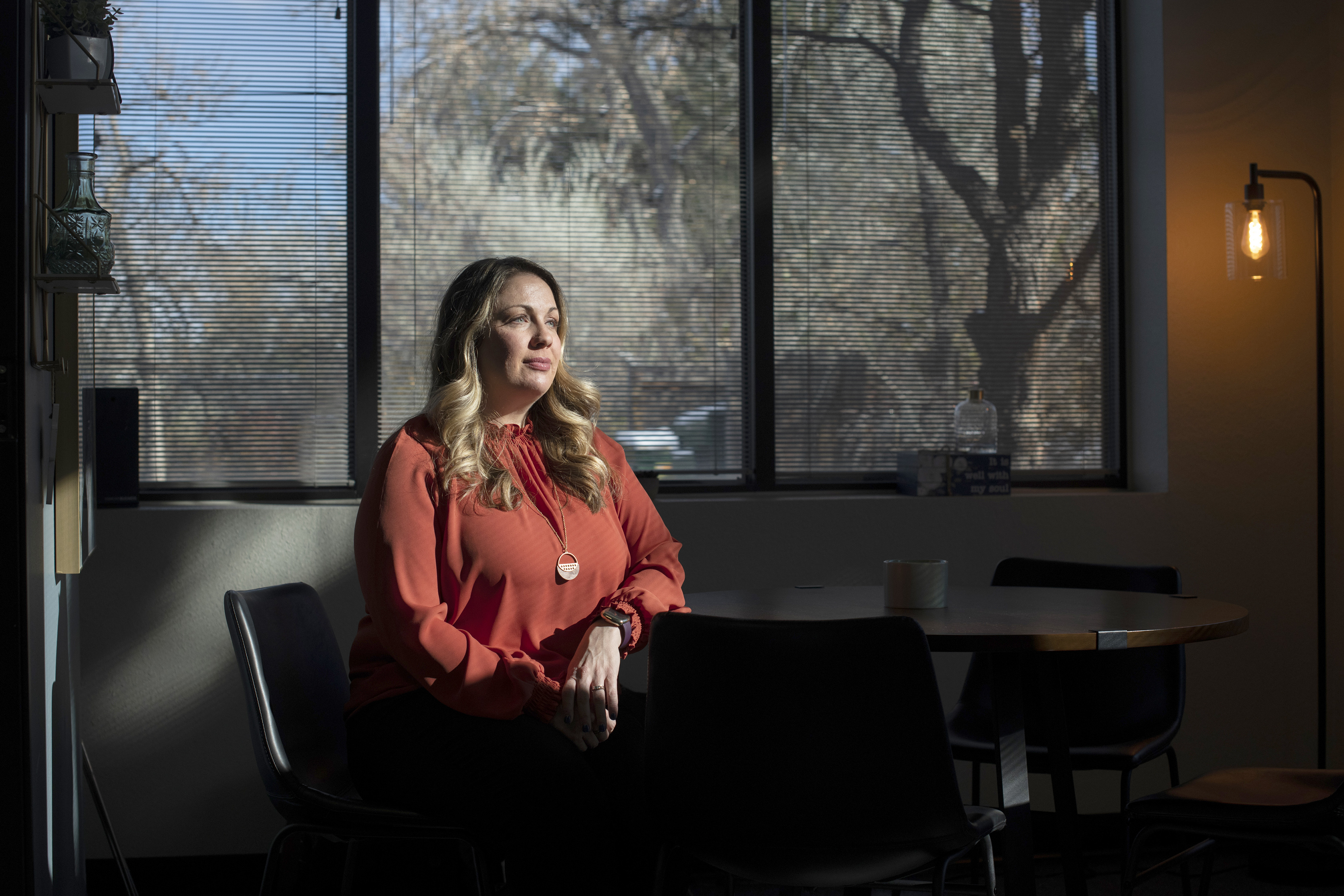LITTLETON, Colo. -- Congress is on the verge of providing landmark federal recognition of same-sex marriage. But the Supreme Court is hearing a case this week involving a Christian graphic artist who objects to designing wedding websites for same-sex couples. Liberal groups say ruling for the designer will expose not only same-sex couples but also Black people, immigrants and others to discrimination. Conservative groups argue that ruling against her will force artists to do work that is against their faith.
In Colorado, residents last year saw their history-making governor, Jared Polis, marry first gentleman Marlon Reis in an intimate ceremony still grand enough to merit high society coverage. But last month, the LGBTQ community and the nation were shocked when a gunman stormed a gay nightclub in Colorado Springs, shooting dozens of patrons and killing five.
Some wonder how the state has come to play such a prominent role in the Supreme Court's consideration of whether same-sex marriage will be treated differently from traditional marriage.
The Colorado legislature never approved same-sex marriage; instead, it was decreed by federal courts. But far earlier, by 2008, the state had outlawed discrimination against gay people in housing, public accommodation and employment, and it established civil rights protections on the basis of gender identity.
"It is really wild to think about how far we've come," said Garrett Royer, the director of One Colorado, an advocacy group for the LGBTQ community. But he added that he thinks the success of the movement has made the state something of a target.
"I think the conservative movement is looking at, how do we chip away at this very progressive nondiscrimination law in Colorado?" Royer said. "And that has implications at the national level to take back these protections."
In an interview, Lorie Smith declined to answer whether she thinks same-sex marriage should be legal, and she said her case is personal, not political. She works for LGTBQ clients on other topics, she said. A victory for her, she said, would be just as valuable to a gay artist who does not want to create for a cause in which she does not believe.
Smith's case follows that of Colorado baker Jack Phillips, who objected to creating a wedding cake for a gay couple. The couple sued, but the case ended with a limited decision. Phillips' lawyer, Kristen Waggoner, is back before the high court today arguing for Smith.
Smith wants to begin offering wedding websites, but she says her Christian faith prevents her from creating websites celebrating same-sex marriages. That could get her in trouble with state law. Colorado, like most other states, has a public accommodation law that says if Smith offers wedding websites to the public, she must provide them to all customers. Businesses that violate the law can be fined, among other things.
Smith, for her part, says Colorado's law violates the Constitution's First Amendment by forcing her to express a message with which she disagrees.
Among Smith's other opponents are the Biden administration and 20 mostly Democratic-leaning states including California, New York and Pennsylvania. The states told the court in one of 75 legal briefs filed by outside groups in the case that accepting Smith's arguments would allow for widespread discrimination.
"A bakery whose owner opposed mixed-race relationships could refuse to bake wedding cakes for interracial couples," the states said. A "real estate agency whose owner opposed racial integration could refuse to represent Black couples seeking to purchase a home in a predominantly white neighborhood; or a portrait studio whose proprietor opposes interracial adoption could refuse to take pictures of white parents with their Black adopted children."
The case comes before a court much changed since the 2018 decision, which left the Colorado law undisturbed but said officials enforced it unfairly against Phillips because of religious bias on the part of some.
Justice Anthony Kennedy, who wrote that thread-the-needle opinion as well as the court's landmark decisions on gay rights, including marriage, has retired. Also gone is a dissenter in the Phillips case, Justice Ruth Bader Ginsburg. She was the first justice to officiate at a same-sex wedding and was an advocate who warned that treating same-sex couples differently from opposite-sex ones would afford the new unions only a "skim-milk" version of marriage.
Kennedy and Ginsburg were replaced by more-conservative justices on a court that has been protective of free speech rights and increasingly sympathetic to challenges brought by religious interests.
Waggoner, the president, chief executive and general counsel of Alliance Defending Freedom, the conservative organization representing Smith, said the court need not break new ground to rule for the businesswoman.
"Public accommodation laws and the First Amendment have coexisted peacefully for years and years, for decades," Waggoner said in an interview. "This case isn't about whether they will continue to do so; it's just about whether the court will continue to follow the precedent that's already set."
Waggoner's brief relies on seminal First Amendment cases that found that the government may not, in her words, "compel speakers to endorse certain messages and eschew others."
In 1995, the court unanimously ruled -- in Hurley v. Irish-American Gay, Lesbian and Bisexual Group of Boston -- that a public accommodation law could not be used to compel organizers of Boston's St. Patrick's Day parade to admit a gay rights group. And Waggoner's brief begins with the court's famous 1943 decision that Jehovah's Witnesses students in West Virginia could not be compelled to salute the flag or recite the Pledge of Allegiance.
Colorado's law "turns those principles upside down, such that artists must now speak government-sanctioned messages, stop speaking their own preferred message, or leave the market in which they hope to participate," Waggoner writes.
Colorado responds that even if the websites Smith wants to produce are expressive -- she has not actually accepted commission for one to avoid running afoul of the law -- she is conflating free speech with selling a product. The state's residents should not have to worry about whether a business will reject them "because of who they are."
The law's application "does not turn on what a business chooses to sell," Weiser writes in the state's brief. "It simply requires that, once a business offers a product or service to the public, the business sells it to all."
Smith, the state says, is free to offer "only websites that include biblical quotes describing marriage as the union of one man and one woman." But then the company "must sell whatever it offers to customers regardless of their race, religion, sexual orientation, or other protected characteristic ... Both believers and atheists can choose to buy its websites with biblical quotes."
The state says that Smith proposes to post on her company website the message that "I will not be able to create websites for same-sex marriages or any other marriage that is not between one man and one woman."
Under Colorado's protection of gay citizens, Weiser wrote, "this amounts to an announcement of illegal discrimination similar to a 'white applicants only' sign."
It is also not enough that other companies would provide similar marriage services to same-sex couples, the state says. The court made that clear decades ago, ruling against a motel that wanted to serve only White guests and a restaurant owner who said an integrated dining room would violate his religious beliefs.
Smith's lawyer responds that "throwing in racism is simply an attempt to shut down the debate and frankly it's offensive to malign people like that." She said Smith would create a website for an interracial couple or an interfaith couple – so long as the couple was heterosexual.
What matters, Waggoner said, is not whether Smith is creating speech for profit -- "our First Amendment rights aren't contingent on whether you're trying to earn a living' -- but that it is a custom project that reflects Smith's beliefs.
Even a finished product might be protected, Waggoner said: Think of the rock star who doesn't want his recorded songs played at the rallies of a politician he abhors.
Smith is supported by a long list of religious organizations and academics who say creating custom speech is different from past public accommodation cases.
Law professors Dale Carpenter, a supporter of gay rights, and Eugene Volokh, a First Amendment specialist, said in a friend of the court brief that a line can be drawn. On the protected side are those who create expression related to weddings: "web site creators, writers, photographers, painters, singers, and similar speakers." On the other, those who perform distinct activities "such as baking, clothing design, architecture, and other media."
Brianne Gorod of the Constitutional Accountability Center, representing a group of law professors, hypothesized examples of what could happen if Smith succeeds at the high court.
"A web designer could refuse to create a web page celebrating a female CEO's retirement -- violating Colorado's prohibition on sex discrimination -- if he believed all women have a duty to stay home and raise children. Similarly, a furniture-maker -- who considers his furniture pieces to be artistically expressive -- could refuse to serve an interracial couple if he believed that interracial couples should not share a home together. Or an architect could refuse to design a home for an interfaith couple," she told the court.
The state of Colorado is supported by the Justice Department, which, under the Biden administration, has switched its position since the Phillips case. Also supporting Colorado are the free-speech-defending American Civil Liberties Union and others.
The Colorado law does not deserve the court's most exacting scrutiny, the ACLU says, because it is aimed at making services open to all, not censoring Smith's opinions about marriage.
The critical inquiry, the organization says, "is not whether a business's act is expressive, as 303 Creative insists, but whether the government's interest in regulating it is aimed at expression."
Information for this article was contributed by Robert Barnes of The Washington Post and by Jessica Gresko of The Associated Press.
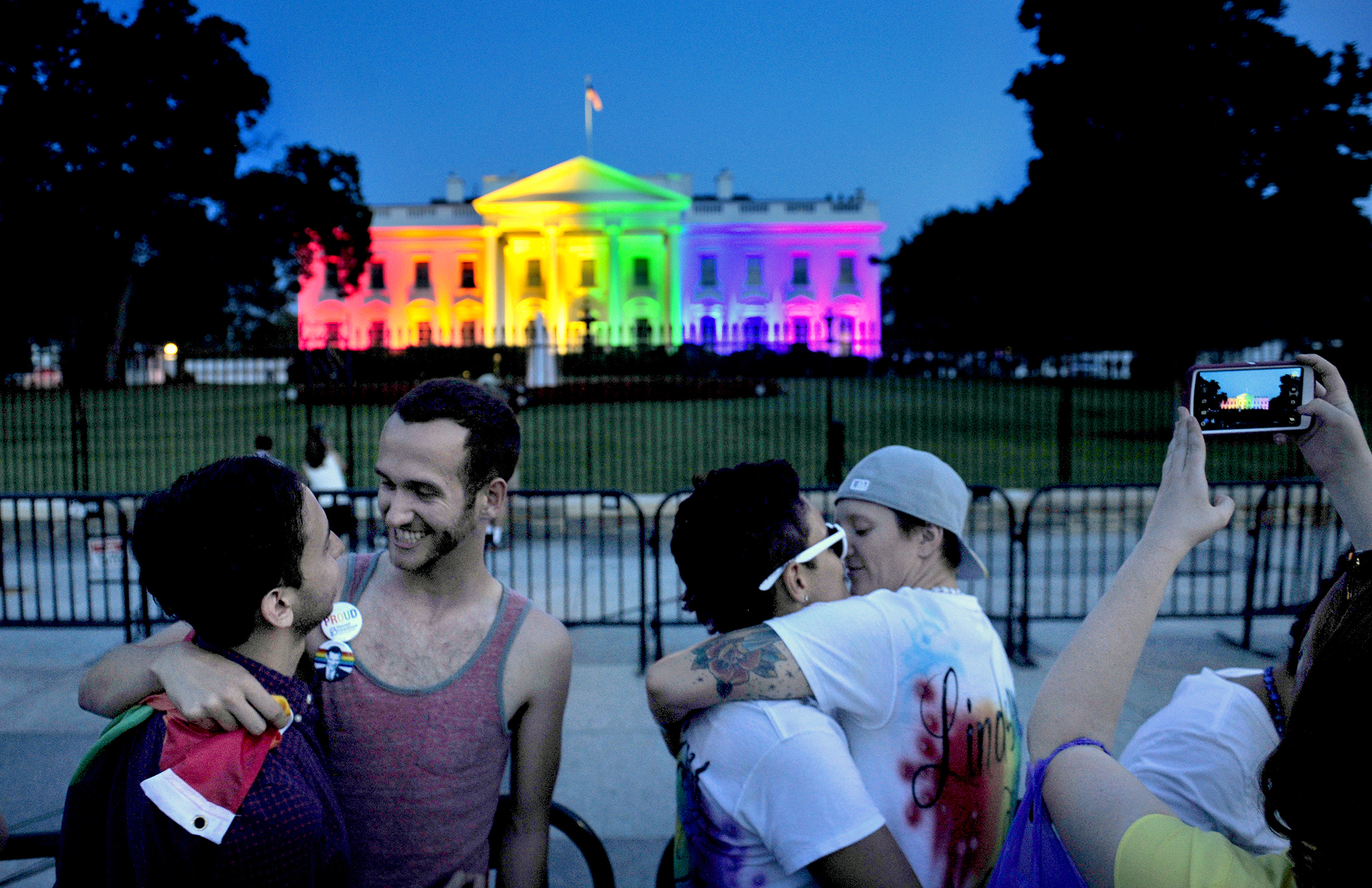 The White House is illuminated in rainbow colors on the night of June 26, 2015, after the Supreme Court ruled that same-sex marriage was constitutional across the country. Celebrating the ruling are Kevin Barragan, left, and his partner, Adam Smith, and Kelly Miller, in glasses, and her wife, Lindsey Miller. The Millers previously wed in Washington state, where same-sex marriage already was legal. MUST CREDIT: Washington Post photo by Michael S. Williamson
The White House is illuminated in rainbow colors on the night of June 26, 2015, after the Supreme Court ruled that same-sex marriage was constitutional across the country. Celebrating the ruling are Kevin Barragan, left, and his partner, Adam Smith, and Kelly Miller, in glasses, and her wife, Lindsey Miller. The Millers previously wed in Washington state, where same-sex marriage already was legal. MUST CREDIT: Washington Post photo by Michael S. Williamson
